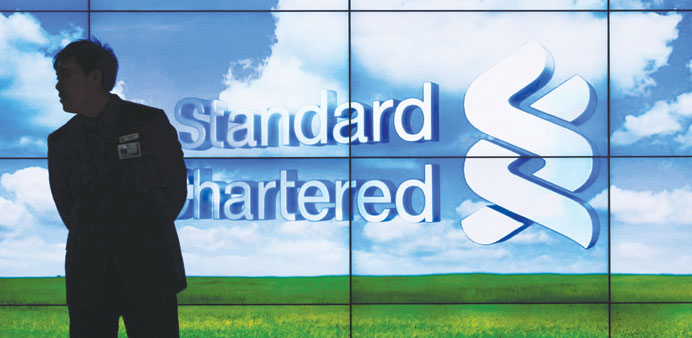Reuters
A $300mn fine on Standard Chartered for lapses in anti-money laundering controls has piled pressure on the bank’s board, coming after a series of transgressions and a drop in earnings that had prompted calls for change at the top.
Chief executive Peter Sands has faced criticism following big losses in Korea, a slowdown in investment banking and the impact of tougher regulations. The bank warned in June that profit would fall in 2014 for a second straight year.
Some investors have already questioned the futures of Sands and chairman John Peace, prompting the bank to reject reports in July that it was stepping up plans for their succession.
The civil settlement announced on Tuesday by Benjamin Lawsky, the New York State financial services superintendent, came two years after Standard Chartered agreed to pay $667mn to a variety of US regulators to resolve similar charges, including $340mn to Lawsky’s office.
A monitor appointed in 2012 uncovered shortcomings in the bank’s surveillance systems that caused a “significant number of potentially high-risk transactions” to go undetected, according to a consent order signed by Sands. The latest settlement calls for Standard Chartered’s New York branch to suspend the processing of dollar-denominated payments, known as dollar clearing, for high-risk business clients at its Hong Kong unit.
A significant amount of the potentially high-risk transactions the system has failed to detect originated from its Hong Kong unit and branches in the UAE, according to the statement.
Standard Chartered will also end high-risk small- and mid-sized business client relationships in the UAE, and obtain approval from Lawsky’s office before opening US dollar-clearing accounts for new clients. It will retain a monitor for another two years.
The decision will impact a few hundred of StanChart’s retail business clients in Hong Kong, which represent a small percentage of the bank’s client base in the city, an industry source with direct knowledge of the matter said.
In a statement, Standard Chartered said it “accepts responsibility for and regrets the deficiencies” in its anti-money laundering surveillance system in New York, and is committed to fix the problems with “utmost urgency”.

